Reflections, expectations raised by CPC cleanup
Updated: 2013-07-02 15:15
(Xinhua)
|
||||||||
HARBIN - This week's stepping-up of China's campaign against extravagance in society and politics has inspired experts and ordinary citizens to reflect on its impact so far, and also to look to the future.
Xue Zijian, 21, worked in a seafood restaurant in Harbin, the capital of Northeast China's Heilongjiang province, that felt the full force of the campaign. The posh eatery had to add ordinary dishes to attract diners earlier this year, and Xue lost his job in a recent staff cutback due to the drop in customer numbers.
Now, he works at a car wash with a monthly salary of about 2,000 yuan (about $324).
"The most important problem is that we are not sure whether the high-end catering industry can regain its busy and profitable business in the future," said Xue.
Across the country, many large restaurants have been hit by the ruling Communist Party of China's (CPC) campaign against extravagance which began late last year.
"Since the beginning of this year, our business has been bad. I have withdrawn my shares after disputes with other partners," said an entrepreneur who had invested in a luxury restaurant in Hangzhou, the capital of eastern Zhejiang province.
This is just part of the changes since the new leadership of the CPC was elected last November. The new leaders have vowed to crack down on corruption and push forward reforms with a series of concrete measures.
Xi Jinping, general secretary of the CPC Central Committee, said on Tuesday that an upcoming year-long CPC initiative will see a "thorough cleanup" of undesirable work styles such as formalism, bureaucracy, hedonism and extravagance.
With more than 82 million members and a history of more than 90 years, the CPC is the world's largest political party.
The latest strand of the campaign aims to strengthen ties between CPC members and the population.
"The cleanup campaign will achieve results when officials always show a kind attitude in dealing with the people," said Sun Yuming, a decorator in Harbin.
"Everything should be done in line with rules and regulations instead of someone seeking help from acquaintances. The 'mass line' means that the public should feel they are in the hearts of officials who exert efforts to solve their problems or difficulties," said Sun.
"Really accepting surveillance from citizens is necessary to improve work styles," said a netizen with the screen name "Qianchaonongfu."
The moves initiated by the top leadership have proved effective among local officials.
Liu Baohua, secretary of the CPC committee of Chenbu township, Xinghua city, in East China's Jiangsu province, said he used to often be kept busy accompanying superior officials on grandstanding tours. With such practices trimmed, however, he now has more time to visit villages.
Superior officials who come to carry out research have a small escort these days and do not allow banquets or accompanying officials, according to Liu.
"The reduction in hospitality and banquets gave me more time to strengthen ties between cadres and the masses," he added.
"It is the right moment and proper remedy to conduct the campaign within the Party for close relations between the Party and the masses," said Fang Mei, a legal professor at Anhui Teachers University.
"The campaign should also focus more efforts on the institutional construction for long-term effects," urged Xin Ming, a professor with the Party School of the CPC Central Committee.
- Newspaper warns of "underground" govt-funded extravagance
- Extravagant official begs for forgiveness
- PLA to rein in extravagance
- China intensifies audits to combat extravagance
- Senior official calls for 'quality' mass line campaign
- China to inspect implementation of 'mass line' campaign
- Military asked to implement 'mass line' campaign
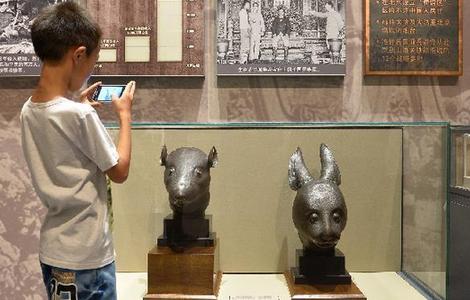
 Rat, rabbit head sculptures on display
Rat, rabbit head sculptures on display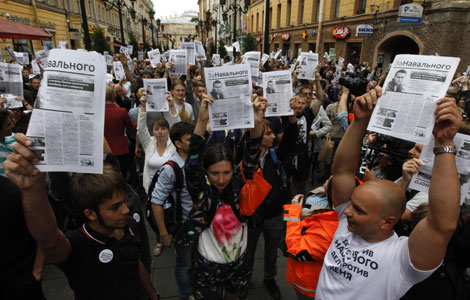
 Russia jails opposition leader
Russia jails opposition leader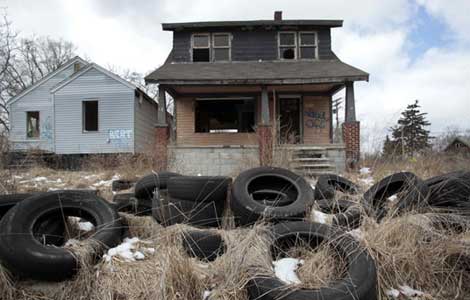
 Detroit files biggest ever US municipal bankruptcy
Detroit files biggest ever US municipal bankruptcy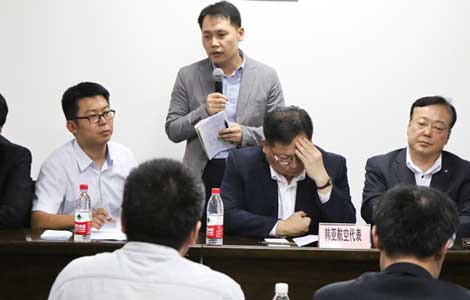
 Plane crash victims' parents seek answers
Plane crash victims' parents seek answers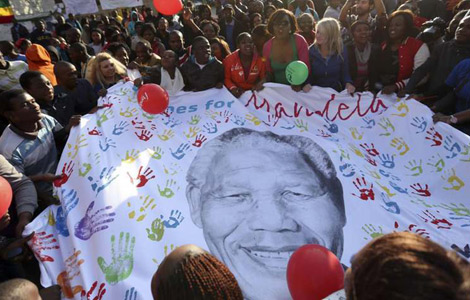
 'Improving' Mandela marks 95th birthday
'Improving' Mandela marks 95th birthday
 Qingdao eatery finds use for pesky seaweed
Qingdao eatery finds use for pesky seaweed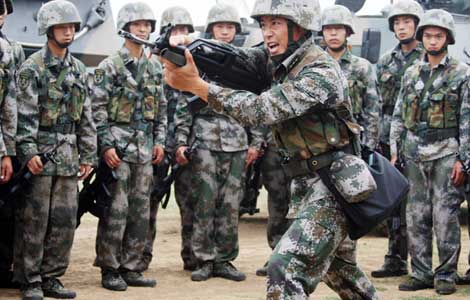
 From university campus to boot camp
From university campus to boot camp
 FIFA head: World Cup in Brazil could be mistake
FIFA head: World Cup in Brazil could be mistake
Most Viewed
Editor's Picks

|

|

|

|

|

|
Today's Top News
Monetary system needs overhaul, says report
US companies seek tougher enforcement of IP laws
Syrian refugees demand help from Kerry at camp
Second iPhone shock leaves man in coma
China's government spends less in 2012
Pregnant Olympic runner dies, baby saved
Detroit files biggest ever US municipal bankruptcy
Obama weighs canceling Moscow talks with Putin
US Weekly

|

|






